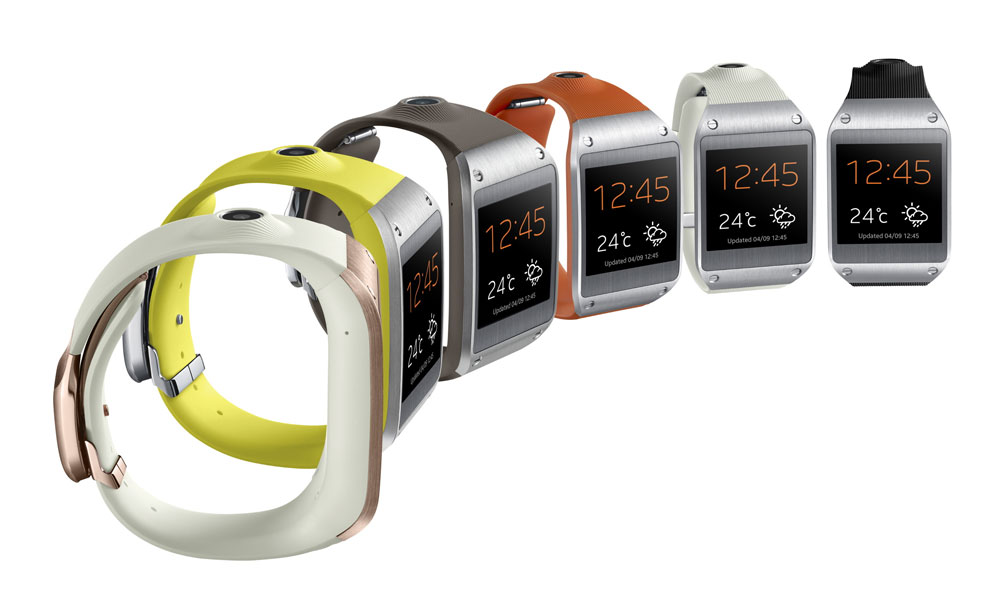
What Time Is It? Time for a Smartwatch, Manufacturers Say
With the mobile market maturing, tech companies are beginning to aim for your wrist. Should you care? (Expect a reference to Dick Tracy in this piece.)
This is an article about watches, so we want to respect your time. Based on the deck above, you’re expecting a reference to Dick Tracy, so let’s get it out of the way so we can discuss the topic at hand.
Back in the 1940s, the popular Sunday comics detective drew great notice for his futuristic approach to communication—a walkie-talkie-style radio device that he wore on his wrist. Later versions incorporated video.
For decades, Dick’s watch represented the ultimate promise of portable technology, but things turned out a little differently. Major tech manufacturers (minus some notable exceptions) have largely ignored the wrist entirely, instead putting smartphones in your pocket/purse and computers in your visor. But now, a number of major tech companies are finally getting in the game and going for your wrist. Should you care? More details:
For event planners, three potential uses for smartwatches stand out.
What’s Coming
In recent days, the floodgates have opened on the product category, with major manufacturers launching new devices, including:
Samsung: The company, which has held its own with Apple on the smartphone front, introduced its Galaxy Gear smartwatch this week, which can do many of the things a smartphone can do—from taking calls to snapping photos. It uses an LCD screen and can tap into the Android ecosystem.
Qualcomm: Perhaps better known for its technology that goes inside smartphones than for its own mobile devices, the company is moving into the consumer market with the Qualcomm Toq. It relies on a Mirasol screen that offers the benefits of e-paper devices, but with color. The Toq does fewer things than Samsung’s device, but its battery life is far better and its screen stays visible even when not in use—because you never know when you’ll need to check the time.
Reaction to the devices was mixed, with PandoDaily calling the Galaxy Gear an “expensive accessory with limited functionality” and Business Insider noting that its cross-functional capability is limited to a single device. (Qualcomm’s Toq received slightly better reviews.) Many pundits are even seeing the devices’ drawbacks as evidence that Apple will own the market with its still-theoretical iWatch.
Smartwatches at meetings?
It’s too early to say whether these devices will catch fire, but for event planners, three potential uses stand out:
Notifications: The Pebble watch, which uses e-paper as its display mechanism, has been utilized as a notification tool, with the popular automation service IFTTT (If This, Then That) allowing it to work with a variety of software products. Even more traditional manufacturers like Casio have started offering notifications as a feature of their timepieces. For events, this could be a great way to help people better schedule their time and resources.
Mobile payments: Though this function previously focused on smartphones, it requires users to load up an app. While technologies such as QR tags, radio-frequency identification (RFID), and near-field communication (NFC) have the potential to transform the market, putting such functionality into a smartwatch would make it possible for users to make payments or identify themselves with with the flick of the wrist.
Security: Want to make sure the people attending your event are only the ones who are supposed to be there? A wrist-based device such as a smartwatch could be one approach for identification, with technologies such as Bluetooth and proximity detection setting the path. The Nymi, a wrist-based device without watch functionality, offers these security mechanisms.
Whatever the present and future of smartwatches may be, it’s hard to sell something if people aren’t willing to buy it. Would you buy one? Tell us in the comments.
Samsung's Galaxy Gear smartwatch, announced this week. (Samsung press photo)






Comments